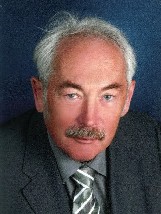The hard drive guys and open source


This was no upset. They previously won the Japan Prize for their discovery. (The photos come from the Japan Prize web site.) The only surprise was that the physics award went to something practical rather than something cosmic.
Mostly consumer reporters like those at CBS wanted to say things like "the iPod wouldn't be possible without this" but there are also important open source implications.
Before this technology reached the market it was assumed that consumer mass media would be optical. Discrete CDs and, later, DVDs would require no change in business models, and data transfers would be slowed by the bottleneck of getting big hunks of data off optical media.
That's not the way it's worked. Today's server farms can store entire libraries and access them within microseconds. This doesn't just make the iPod possible, it makes the consumer Internet possible. It makes Google possible.
And it's the consumer Internet, with its business model assuming zero-cost distribution and zero-cost marketing of large files, which drives open source.
So maybe we should call Albert and Peter "the Internet guys" because, in many ways, they made what you're reading today possible.